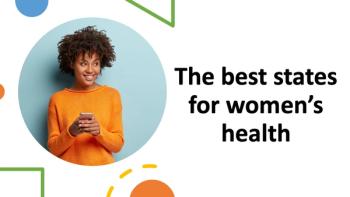
Women Demand Better Menopause Support in the Workplace
A new report highlights the unmet needs and stigma around menopause in the workplace.
Women are becoming more vocal about the need for more support during menopause, specifically in the workplace. While there’s growing awareness and more discussions about menopause, many women are still finding their needs unmet, which impacts their careers and overall well-being, according to a report by Bonafide.
Out of the over 2,000 women experiencing pre-menopause or menopause symptoms and aged 40 to 64 surveyed, 51% want more workplace support for menopause, yet 76% have no accommodations.
The report suggest potential workplace support could include increased time off, more flexible schedules and fostering an empathetic environment. Some changes such as allowing for breaks when needed and providing access to resources, could make a difference in the lives of menopausal women.
However, factors such as menopause stigma continues to affect women’s careers.
For example, nearly half (48%) of the women surveyed believe that menopausal women are perceived as less productive or emotionally stable at work. Additionally, 49% of women say that menopause has impacted their job performance, with younger women under 50 experiencing a 27% higher impact compared to their older counterparts.
Career aspirations are also affected, with 42% of women reporting that their symptoms have dampened their ambition. As women comprise 51% of the U.S. workforce, the lack of support for menopause not only affects individual career growth but also has broader economic implications.
There is a positive trend of women speaking up more about menopause, helping to reduce stigma and raise expectations for care standards.
For instance, the survey revealed a 12% increase in those openly discussing menopause with friends and family and a 14% rise in conversations with healthcare providers from 2023 to 2024.
Although, data revealed that 69% of women state that their knowledge about menopause primarily comes from personal research rather than professional medical advice. The use of online and in-person communities has grown by 10%, showing that women are taking the initiative to educate themselves about their health.
While awareness and education about menopause are improving, many women still face significant challenges.
Around 36% of women report receiving conflicting medical advice, and 56% feel they are often told to simply "deal with" their symptoms. Nearly a quarter (24%) feel that their healthcare providers do not take their symptoms seriously.
In addition, the study revealed only 31% of OBGYN residencies offer any menopause curriculum, despite 95% of women believing that learning about menopause should be a requirement in medical school.
This education gap contributes to the lack of support and advice for women going through menopause.
The call for better support is highlighted in the report with 99% of women indicating the need for increased funding for women's health research.
Currently, less than 2% of the National Institutes of Health’s 2024 budget is dedicated to women's health, but 88% of respondents believe that women's health should receive at least a quarter of the budget.
As more women speak out about their experiences and needs during menopause, it’s crucial for workplaces and healthcare systems to respond with adequate support and resources. Bottom of Form
Organizations can take several steps to ensure their employees feel valued and supported during this phase of life, according to a report sharing experts views in
- Listen to Employees: Minaa B., a licensed social worker, suggests conducting regular surveys to understand employees' well-being, including their experiences with menopause. Questions could address whether employees have discussed their symptoms with supervisors, how these symptoms affect their work and what accommodations could help them manage better.
- Build Benefits: Many companies already offer fertility and maternity benefits that can be extended to include menopause support. Carrot Fertility and Maven Clinic provide workplace menopause support via apps offering counseling and services. Companies like Boots, Linklaters and Lululemon cover preventive screenings, visits to menopause specialists, and treatments like hormone therapy. WW offers holistic solutions such as diet counseling, while Channel 4 provides paid time off for menopause symptoms.
- Raise Internal Awareness: Raising awareness about available benefits and reducing the stigma around menopause is crucial. Kate Phillips of Bank of America emphasizes the importance of eliminating the discomfort surrounding menopause discussions at work. Pfizer, for example, launched an internal podcast and introduced new benefits to help employees understand and manage menopause. Vodafone offers training and awareness programs to support employees and normalize conversations about menopause.
- Participate in Advocacy: Supporting menopause-friendly policies and federal research can have a significant impact. Jennifer Weiss-Wolf of NYU's Birnbaum Women’s Leadership Center advocates for systemic support and legislation like the Menopause Research and Equity Act. Bristol Myers Squibb, recognized for its work on women's health, participates in policy advocacy and partners with initiatives like the Women in Work Summit to promote best practices.
Newsletter
Get the latest industry news, event updates, and more from Managed healthcare Executive.























